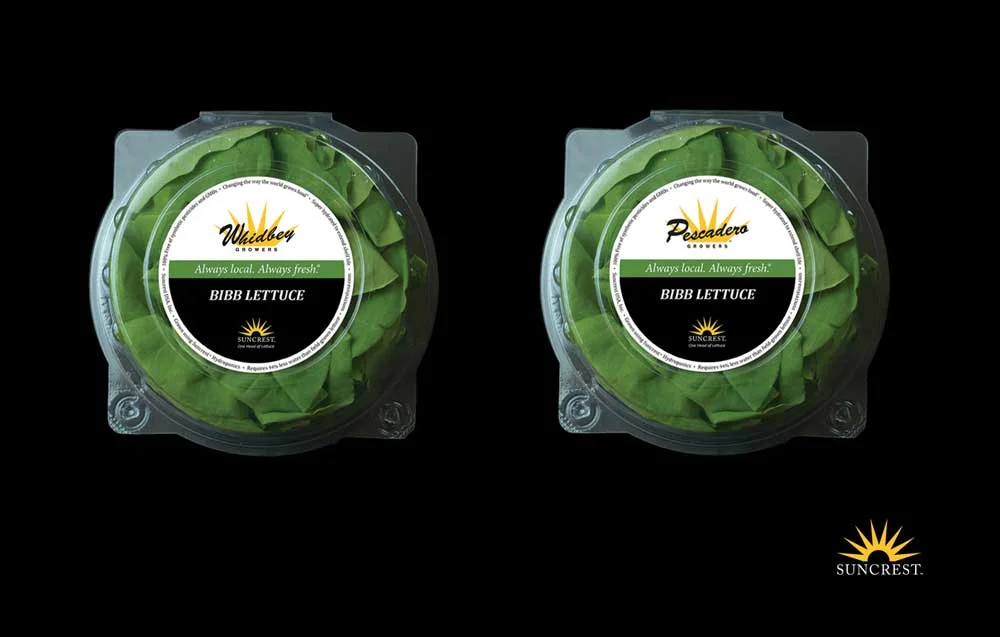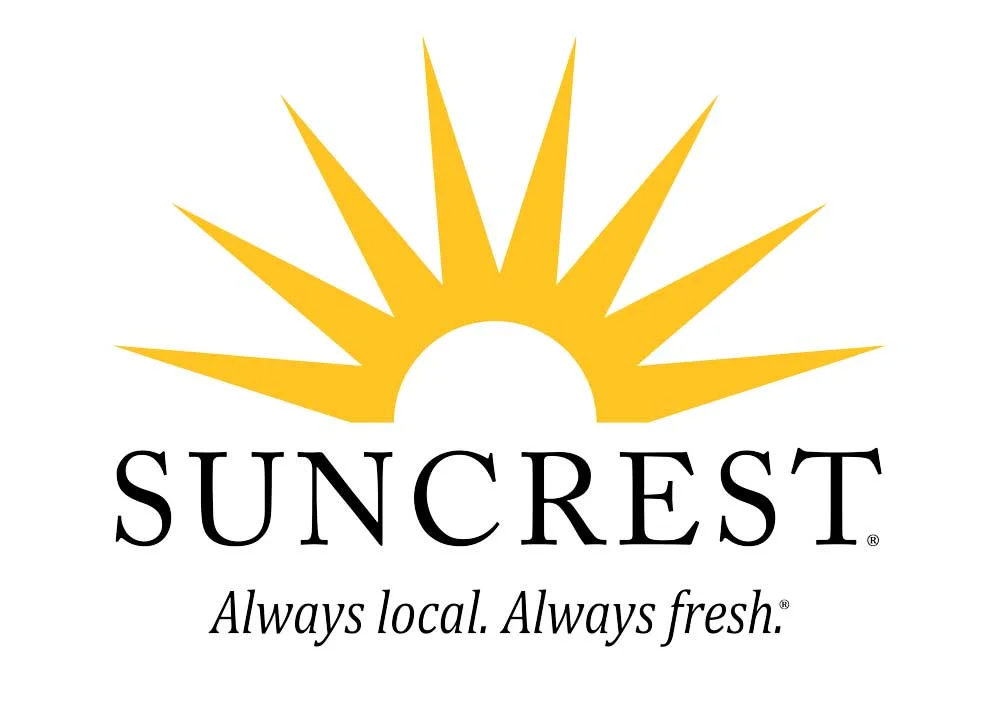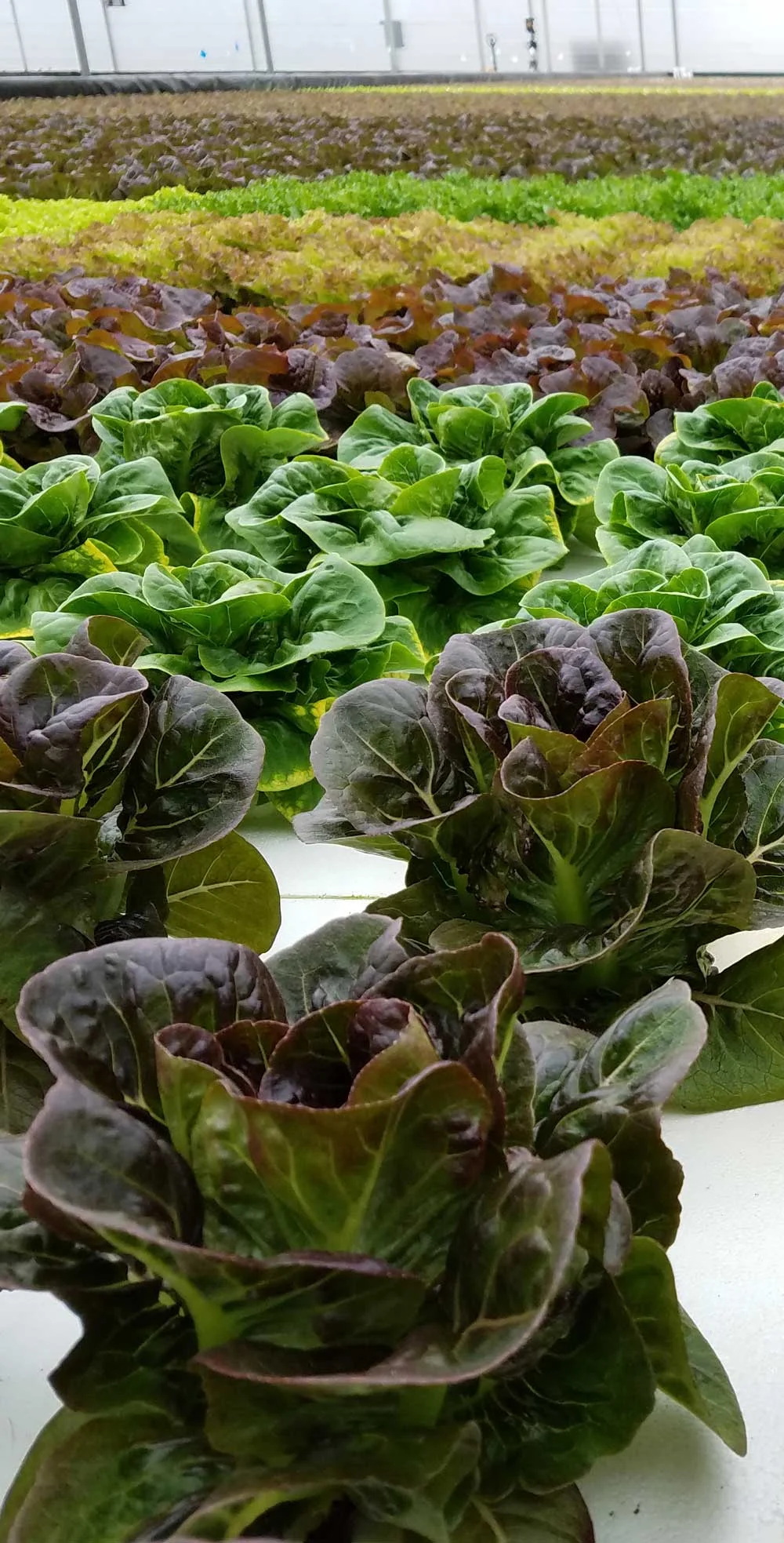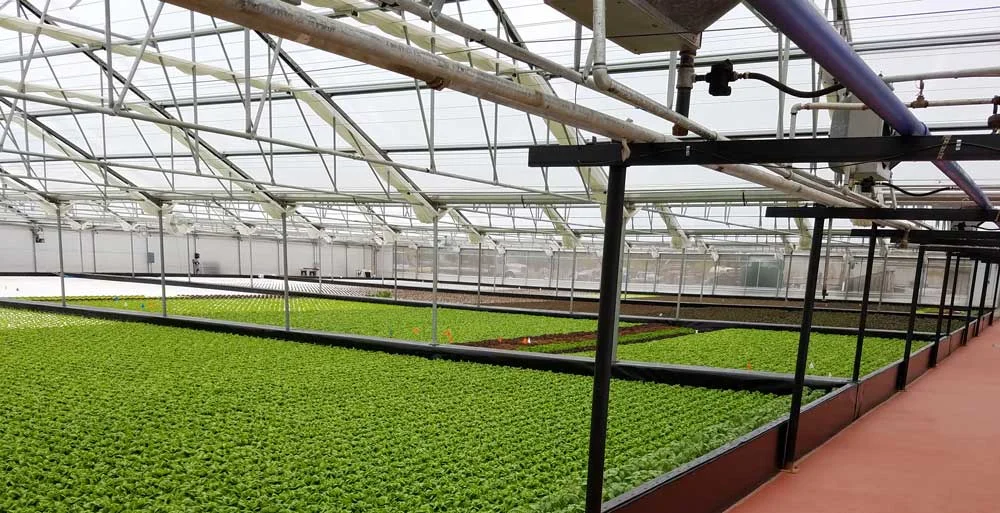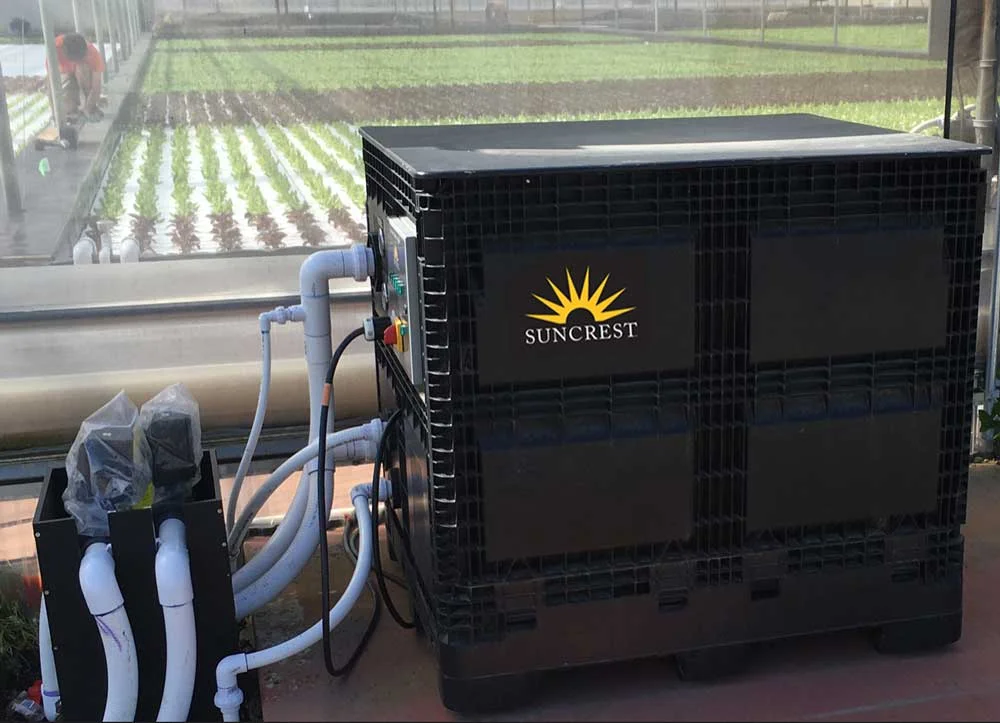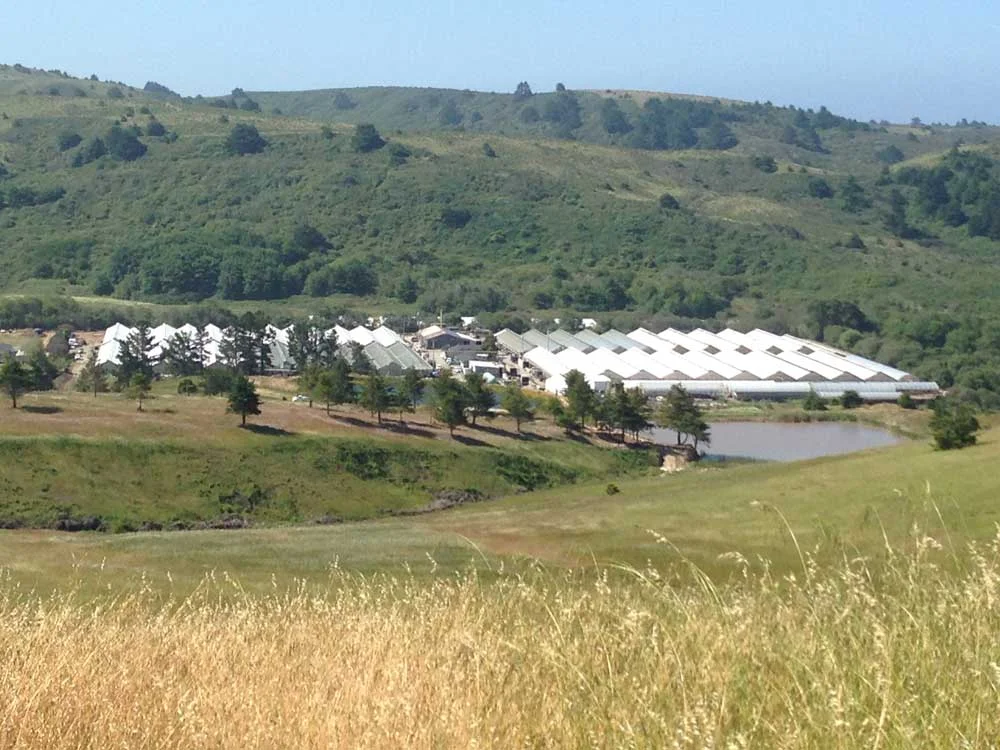Suncrest has successfully completed an initial pilot of year-round greenhouse production at scale, established and built its brand in the Bay Area, and has won marquee customers; now a leader in sustainable hydroponic agtech, it looks to significantly expand distribution and production capabilities in the Bay Area and beyond.
SAN FRANCISCO, May 2, 2017: Suncrest USA Inc., a leader in sustainable hydroponic growing technology, has ramped up production in Silicon Valley to meet strong demand from local restaurants and grocers for its locally grown leafy greens. In less than two years, Suncrest has successfully progressed from an angel-backed pilot project operating in stealth mode to a 1.25-acre scaled-up greenhouse operation with dozens of marquee customers and proven technology. To date, it has signed licensees in two key markets: Seattle and the San Francisco Bay Area, and is gearing up for operations in 40 U.S. markets.
“With strong sales volume and brand recognition for Suncrest Lettuce in the SF Bay Area, we are now looking to add more growers to our family of licensees,” said Jim Day, founder & CEO, Suncrest USA Inc. “For the moment, we are focused on West Coast markets, but we expect to be on the East Coast in just a few more years.”
Note to editors: Jim Day is presenting at panel: “Catering to the New Consumer” at the Silicon Valley AgTech Conference (May 5, 10:30am — Computer History Museum, Mountain View, CA 94043). Please contact Tim Cox to set up an interview at the event.
Suncrest® — Changing the way the world grows food.®
Suncrest is changing the way food is grown by licensing its advanced hydroponic technology to greenhouse growers so they can cater to strong and growing consumer demand for year-round, locally grown lettuce and leafy greens. Suncrest delivers sustainable, high-quality product from local growers that is Always local. Always fresh.®
Transformational business model turns around struggling local greenhouse operations
Suncrest’s patent-pending, deep-water culture (DWC) hydroponic systems enable local greenhouse growers, many of whom are struggling financially, to transform their underperforming greenhouses into high-value, high-volume, year-round production facilities. Suncrest then cross-trains the grower, purchases most of the production, and develops local marketing, sales, and distribution techniques.
Suncrest’s first licensee was a small greenhouse operator on Whidbey Island, north of Seattle. Initially established as a pilot project and proof of concept for Suncrest’s initial investors, the operation is now operated by Suncrest subsidiary Whidbey Growers LLC. as an R&D operation to test varieties and technology for Suncrest’s larger licensees. With its licensing model established, technology proven, and with demand already strong for its high-quality lettuce, Suncrest went after its next major milestone — a scaled-up operation.
Suncrest establishes Silicon Valley operation and scales up to meet lettuce crop shortfall
In 2015, Suncrest identified the San Francisco Bay Area, with its persistent drought and obsession with high-quality local produce, as its next beachhead. Earlier this year, Suncrest entered a key phase of its growth with the successful completion of a 55,000 square-foot pilot with Oku Inc. of Pescadero, Calif., a family-owned cut-flower operation established in 1902. With 440,000 square feet of greenhouse space, Oku represents the perfect licensing partner since South American flower imports have eaten into its profits.
The initial Oku-owned Suncrest operation, called Pescadero Growers, is a 55,000 square-foot DWC hydroponic lettuce operation. With the help of Suncrest’s marketing and distribution expertise, Pescadero Growers is repositioning itself to become a major player in the new, local, sustainable agriculture movement.
Suncrest has already established a local market for Pescadero Growers by signing up premium grocers and upscale restaurants such as Chez TJ (Michelin Star), Epic Steak House, Lexington House, Madera on Sand Hill (Michelin Star), Monsieur Benjamin, Parcel 104, Sharon Heights and Los Altos Country Clubs, Tender Greens, The Fairmont San Francisco, The Ritz Carlton (San Francisco and Half Moon Bay), Woodside Village Pub, and Zume Pizza in the Bay Area. Meanwhile, retailers such as Bianchini’s Markets, Robert’s Market of Woodside, and Sigona’s Markets are now offering Pescadero Growers lettuces.
“In the past, when we grew flowers, it was food for the soul,” said Steve Oku, owner of Pescadero Growers, and former president of the San Francisco Flower Mart. “But now, we are also growing food for the body — we are now nurturing both body and soul.”
Suncrest expands Silicon Valley operations, looks for next launch-pad
The recent persistent and strong rains, and shorter growing season, in Arizona and California have led to shortages of several crops, including lettuce. And with production constrained, wholesale prices have been rising. Today, Pescadero Growers’ large hydroponic tanks, where the lettuce floats on nutrient-rich rafts, can produce nearly 1MM heads of lettuce per year. But after an expansion currently underway, it will be closer to 2.25MM heads per year.
Currently, most of the volume is Bibb lettuce, Red Romaine and Green Romaine. Now that Suncrest has successfully completed year-round greenhouse production at scale, and has demonstrated an ability to build brand and win customers, the company is looking for its next scale-up location.
“Sustainable, indoor agtech has come into its own as an industry,” said Day. “What differentiates Suncrest is its scalable licensing model that not only includes turnkey hydroponic systems, but also builds brand and market share within each local market. This is the best of all worlds for the grower: they can now grow a branded product rather than a commodity, using tools and techniques that substantially increase their revenues and profit per square foot.”
Greener, cleaner and sustainable
Hydroponics is significantly more environmentally friendly than field-grown lettuce. For example, it takes 16-38 gallons of water to grow a single head of lettuce in the field, but only one gallon using hydroponics. According to USDA, field yields for field-grown lettuce are only about 0.4 heads per square foot, compared with 25+ heads per square foot in hydroponics. This is due to packing density and the number of growth cycles per year in a greenhouse. And by using a local distribution model, there is zero carbon footprint due to long-haul distribution.
About Suncrest USA Inc.
Since its inception in 2013, Seattle-based Suncrest USA, Inc. has focused on changing the way food is grown to address strong and growing consumer demand for locally grown lettuce and leafy greens that are Always local. Always fresh.® Suncrest® licenses its turnkey deep-water culture (DWC) hydroponic systems to local commercial growers eager to transform their underperforming greenhouses into high-value, high-volume, year-round production facilities. Suncrest then cross-trains its licensees, purchases most of the production, and develops the market, sales and local distribution channels. For more information, visit www.suncrestusa.com.
The Suncrest name and logo, Always local. Always fresh. and Changing the way the world grows food. are registered trademarks of Suncrest USA Inc. All other company names and products mentioned in this release may be trademarks or registered trademarks of their respective owners.
Designing two logos on the crisper label was a real challenge. After several iterations, it became clear that the Suncrest logo worked well in reverse on the black to create a foundation of support for the local grower’s logo that is more prominent on top. Adding the ring of copy became both a design element as well as information for the consumer.
The mark shows off a rising sunburst from behind a tunnel-style greenhouse. The upward feeling is bright, light, fresh and in-synch with the Suncrest name.
Crisp, fresh Red Romaine growing in Suncrest’s Deep Water Culture (DWC) hydroponictank at Pescadero Growers.
Pescadero Growers operates Suncrest’s Deep Water Culture (DWC) hydroponic tanks in a 1.25 acre greenhouse to grow local Bibb and Red Romaine lettuce for the SF Bay Area.
Suncrest’s modular, DWC Control Module circulates more than 35,000 gallons of water dailyto maintain optimum growing conditions for the lettuce.
Pescadero Growers operates Suncrest’s hydroponic growing systems in a 2.5 acre greenhouse Range – part of Oku Flower’s ten acre greenhouse facility located in Pescadero, California.
###

